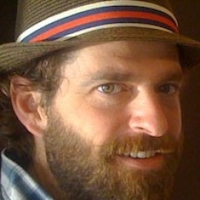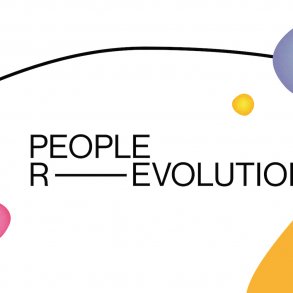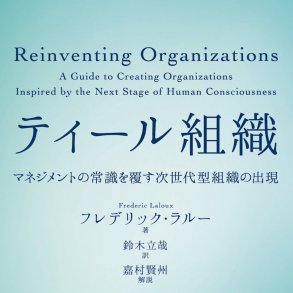By Scott Annan for Enlivening Edge Magazine
Scott will tell about his personal journey in EE’s Community Conversation on Thursday June 4th. Read more here and subscribe to get access information.
Both the ambiguity of today’s world and the desire to explore new frontiers are familiar territory to me as an entrepreneur. Throughout my many journeys, I’ve discovered the important and transformational value of guides, and am committed to create a way for all of us to guide each other to new destinations.
Fifteen years ago I left a senior-level role in an international corporation to move back to Ottawa, Canada and start a tech company with two partners. I was full of ideas and ambition with no idea what I was doing. But we were living the entrepreneur dream of working for ourselves – which meant twice as many hours for less than half the pay.
We had landed a few contracts through people we knew and were able to pay our employees and bills on time. Then the housing market collapsed, the financial crisis hit, and all of our contracts were immediately suspended. Every. Single. One. All three founders were the primary income earners for their families and collectively the parents of six kids under 10, and now we were facing imminent financial ruin.
Fast forward to today and I’ve started several businesses, a fund, an accelerator, and worked with dozens of entrepreneurs as a community builder. I’ve learned that my first “crisis” is neither exceptional nor unique.
Despite the headlines that make company founders out to be heroes, the truth is that it takes a community to build a successful tech company, or, for that matter, anything worth building.
Fifteen years ago when I started that company, the startup landscape looked a lot different. Facebook wasn’t available to the public and Myspace dominated “social media”; Twitter and Youtube didn’t exist yet.
The internet bubble of the late nineties left the industry with a major hangover. Although new websites and apps could launch and grow rapidly, there were very few people investing in startups and no viable business model, so the people starting companies weren’t doing it for the money. Like many of the people I met in those early years, I was an idealist who saw technology as an Archimedes lever for creating positive change in the world.
This contributed to a strong startup community committed to sharing everything – including code (open source), experiences, and connections. Our individual challenges were subordinate to our collective challenges – lack of awareness, ambivalence, and battling the status quo.
If your startup was covered by Techcrunch, had breakout growth, or hit a major financial milestone, there was a communal cheer among all startups – another one of us “made it”, opened new doors, pushed the frontier of what was possible.
And if you “made it”, you would share your story and experiences with other founders, just as those before you had shared with you.
It was more than a “paying it forward”, it was recognizing that a rising tide floats all ships – pushing the collective frontier opened new pathways for all of us.
This community proved an invaluable resource for me. Whenever I was “stuck”, or facing a crisis, I could reach out to anyone in the community and ask for help. The conversations always followed the same script – “that sounds like a difficult problem. When I was faced with a similar problem, this is how we overcame it”.
The conversation was neither pedantic or prescriptive, it was simply a sharing of experiences. The underlying message was “we’re all trying to figure it out as we go… here was my approach”.
After hundreds of these conversations, I was inspired with an idea. We have applications for sharing code where someone can upload a snippet of computer programming and others can contribute to it (Github is the most popular).
What if there were a similar application for sharing experiences – things that “worked” – that could evolve based on community contribution?
It would be a sort of collective “playbook” for startups with thousands of different creators and contributors to help us increase our individual successes and our collective goals.
When we launched it was called StartupPlays – playbooks for startups. It included hundreds of interactive documents that included field-tested step-by-step instructions on how someone achieved a milestone in their business – including spreadsheets, presentations, or whatever else they used.
There were “plays” on raising money, sales, hiring, technology, marketing and dozens of other topics. And as more founders used these “playbooks”, they would share their experience and contribute to growing and evolving our collective knowledge.
I soon realized that the challenges we face in the startup community are not unique. In nearly every industry and job, the complexity, pace of change, and need to adapt “on-the-fly” has become “business as usual”. Our personal lives have also become more complex as we navigate changes in our career, families, and communities.
Most of the challenges we face — both at work and at home — are subordinate to our collective challenges: new technologies, globalization, climate change, the inequality of many of our institutions and systems, the status quo.
StartupPlays is now Guides.co. There are thousands of guides – shared experiences – on topics ranging from starting a business to practicing yoga. It is a free, open platform for individuals to share their experiences for the benefit of others and to evolve our collective knowledge.
It is a platform for businesses to store their practices and procedures and tap into, and to participate in the development of new industry solutions and best practices. It is a platform for society to uncover new frontiers that will enable us to overcome the urgent and complex challenges we face collectively, so that we can benefit individually.
We’re starting to see the same kind of impact in many sectors that we had in those early days with startups – with an emerging culture of sharing and co-discovery.
Many of the Teal principles embody that culture: stewardship, shared ownership, purpose over profit, bringing our whole selves; and, perhaps most importantly, embracing ambiguity with the goal not to “win”, but only to discover new frontiers.
Our vision for Guides.co is one where we intentionally blur the lines between internal and external, between “employees”, “customers”, and “contributors” with a fair-share model with distributed governance, ownership, and revenue. We try to make every person on our platform not a “user” but a fellow traveller in a shared quest to discover new frontiers — individually and collectively.
In short, we try to embody what it means to be a “guide” – not to extract power, but to make others powerful so that we might increase our collective knowledge and capabilities.
That first crisis fifteen years ago nearly ruined me. We ended up restructuring, downsizing, and refocusing the business. My partners returned to the corporate world. I raised some money and found a new client.
But I would have quit if it weren’t for some of the great founders in Ottawa, Canada – many of whom went on to create world-changing businesses in e-commerce (Shopify), health, and communications. They openly shared their knowledge and experience and helped me turn that company into a platform that could help others overcome their crises, too.
We have a long journey ahead of us. I believe we can guide each other through ambiguity and complexity toward new frontiers.
 Scott Annan is the founder of Guides.co – an open platform for sharing knowledge to help individuals, businesses, and communities grow together in a complex world. [email protected]
Scott Annan is the founder of Guides.co – an open platform for sharing knowledge to help individuals, businesses, and communities grow together in a complex world. [email protected]
Featured




